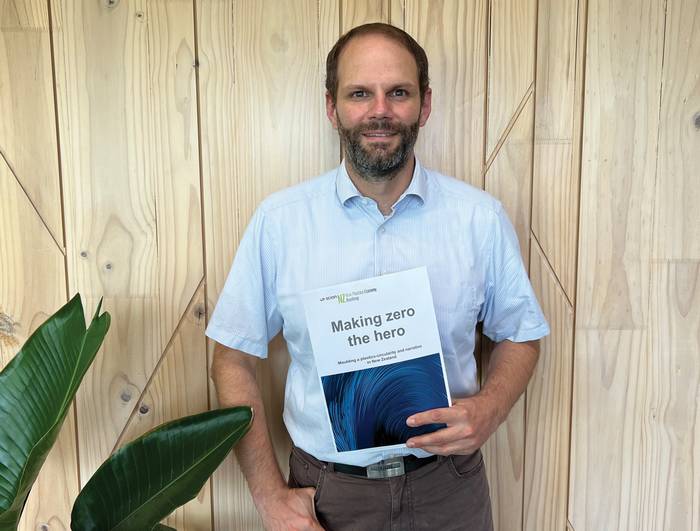Making zero the hero

Eliminating plastic waste is “doable, but difficult,” a report, released by Scion in March, has explained.
“Reaching the objective of zero plastic waste will require aligned efforts by science, industry, government and the public,” says Marc Gaugler, report author and Scion’s lead for the Distributed and Circular Manufacturing portfolio.
“Our research shows there is already extremely high commitment from industry, but they need support from central and local government in the form of clear and coordinated policy, regulation, incentives, and much better nationwide recycling systems. Consumers will have to do their bit – without their demand and participation, it cannot succeed.
“We must also make sure that the strategy fits with other initiatives to reduce carbon emissions and pollution,” he says. The report, titled Making zero the hero, focuses on re-using and recycling the plastics we mostly use now and stopping them from escaping into the environment. It comes as the Ministry for the Environment (MfE) seeks views on proposals to significantly transform recycling in New Zealand.
The report, titled Making zero the hero, focuses on re-using and recycling the plastics we mostly use now and stopping them from escaping into the environment. It comes as the Ministry for the Environment (MfE) seeks views on proposals to significantly transform recycling in New Zealand.
The report’s authors worked with industry partners to identify the challenges, barriers and opportunities to understand how global plastic supply chains are part of New Zealand’s transition to a New Plastics Economy.
Making zero the hero follows the 2019 report on the New Zealand plastics problem by the Prime Minister’s chief science advisor, professor Dame Juliet Gerrard, which lamented the lack of data on which to base a strategy.
“It’s great to see this report aiming to fill some of the information gaps we identified in Rethinking Plastics, using a very practical, evidence-based approach," says Gerrard.
Packaging New Zealand president Harry Burkhardt says Scion’s Making zero the hero report is noteworthy because it puts the onus on both the packaging producer and the consumer.
He says successive governments have dealt with the packaging industry as primarily a waste producer.
“We’re pleased to see a report that provides a much more balanced perspective of the role consumers, government and business will have to play if we want to reduce plastic waste.”
In March, the United Nations passed a landmark agreement to stop plastic pollution, and the New Zealand government announced a consultation process on separating household and commercial food waste, standardising recycling collection across the country, and a drink container return scheme.
Gaugler explains that the perception of plastics is very negative, however we also need to acknowledge that plastic is an incredibly important material that, though carbon emission-intensive to produce, allows all sorts of efficiency gains.
“For example, plastics mean lighter planes and cars, requiring less fuel to run, and affordable, vital healthcare products. Recycling a metric tonne of plastic packaging into new products conserves almost 1.4 tonnes of CO2-equivalent emissions.
“Furthermore, plastics are deeply embedded in so many industrial processes, we simply could not do without them.
“We have to turn the public away from the overly simplistic idea of elimination, and channel their goodwill into sensible reduction and re-use, conscientious recycling, and replacement where that is possible, without compromising food safety and protection, for example.
“There’s a lot of education that has to happen, but we have a New Zealand public willing to learn and keen to do the right thing,” Gaugler explains.
Scion’s work on New Zealand’s New Plastic Economy was funded by the Ministry for the Environment’s Waste Minimisation Fund. Scion is working on a number of projects to replace fossil fuel-based plastics, chemicals and other products with wood, bark and other plant materials.
